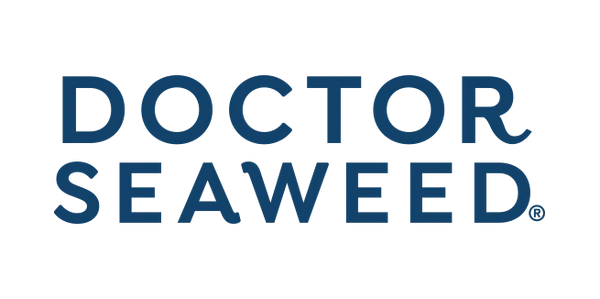Understanding the different types of iodine is key to reaping its nutritional benefits
If you’re a regular reader of our blog, you’ll no doubt be somewhat familiar with the importance of iodine for our health and wellbeing. Iodine is essential for thyroid health, impacting everything from metabolism to cognitive development.[1] And as the only viable vegan source of iodine, seaweed has a key role to play in addressing the ongoing iodine deficiency in the UK.[2]
Let’s take a look at a common question we often hear regarding the differences between naturally sourced iodine, and synthetic and artificial iodine.
Understanding synthetic and artificial iodine

Iodine can be found naturally in several key food sources, such as white fish, dairy and, of course, seaweed. It’s almost impossible to completely synthesise elemental iodine, but forms of iodine created in a lab, such as potassium iodide, can technically be referred to as synthetic iodine.[3]
Synthetic iodine is used in medical practice to treat specific thyroid conditions. For example, one kind of treatment for hyperthyroidism is to administer synthetic thyroid hormone.[4] This can also be used to treat a partial or total thyroidectomy.[5] However, it’s vital to bear in mind that synthetic thyroid hormone and iodine are completely different substances and cannot be used interchangeably.
The difference between artificial and natural iodine
One way in which these artificial sources of iodine differ from naturally sourced iodine is the speed at which the body absorbs the mineral. Independent clinical trials have shown that artificial sources of iodine, such as potassium iodide, release iodine into the system quickly and cause a spike in iodine levels.
By contrast, natural plant materials like seaweed have iodine bound into fibres, allowing the iodine to be broken down more slowly. A more consistent, sustained release of iodine is beneficial because it allows your body to manage, absorb and utilise the influx of iodine more efficiently. This is evidenced in this graph, showcasing our independent clinical research.[6]

What’s more, a study published in the British Journal of Nutrition concluded that those sourcing iodine from organic seaweed were able to excrete the iodine they didn’t need, reducing the risk of consuming too much of the nutrient.[7]
Why do we need iodine supplements?
Many people make the mistake of assuming that if a nutrient comes in supplement form, it must be synthetic. However, this is far from the truth. Many organic nutrients are available as capsules, including iodine.
In an ideal world, we would consume all the vitamins, nutrients and minerals our bodies need through a balanced diet, but this can be hard to achieve – particularly for those who eat a restricted diet, such as vegans. Supplements can help us fill gaps in our nutrient intake and boost our overall health and wellbeing.
You can read more about the benefits of supplements here, if you’re still on the fence.
Our Weed & Wonderful® capsules contain organic seaweed sourced from the pristine waters of the Scottish Outer Hebrides. Different types of seaweed contain varied concentrations of iodine, which is why we wild harvest the highest quality seaweed and test for iodine content. As such, independent analysis shows that our seaweed is higher on key measures of quality than other leading brands, and this includes iodine content. Just one of our Weed & Wonderful® capsules contains as much iodine as three whole mackerel.

